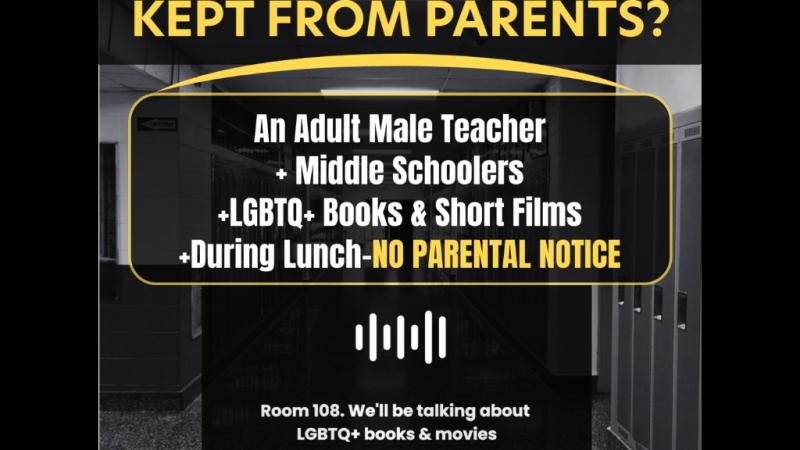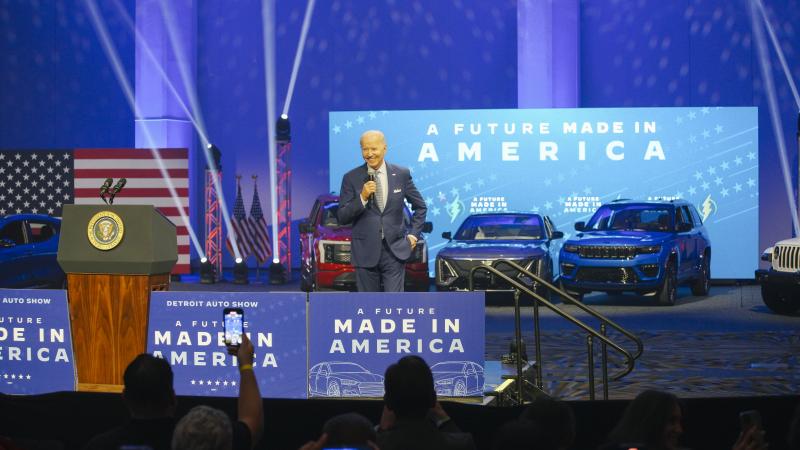Scrutiny on regulators grows after Pfizer testimony that COVID vax was never tested for transmission
Twitter booted COVID contrarian journalist days after FDA commissioner-turned-Pfizer board member complained he was whipping up physical threats against Anthony Fauci.
A Pfizer executive's admission that the company had no idea whether its COVID-19 vaccine would stop viral spread, the oft-recited basis for vaccine mandates and restrictions on those who refuse jabs, has ramped up the negative spotlight on regulatory agencies and public officials worldwide.
As the U.S. extends the COVID public health emergency declaration another 90 days despite President Biden's declaration that "the pandemic is over," the revolving door between U.S. regulators and drugmakers is also under scrutiny.
Asked during a European Parliament hearing whether Pfizer tested its mRNA vaccine for transmission before its emergency use authorization, President of International Developed Markets Janine Small responded "No" with a slight chuckle.
"We had to really move at the speed of science to really understand what is taking place in the market," Small explained to Dutch MEP Rob Roos, who tweeted the clip. "'Get vaccinated for others' was always a lie," Roos wrote.
Small filled in for Pfizer CEO Albert Bourla, who pulled out of testifying in the wake of an audit that found European Commission President Ursula von der Leyen was "directly involved in preliminary negotiations" for a Pfizer-BioNTech contract, rather than the usual "joint negotiating team" composed of EC and member countries' officials, Politico reported.
Due to "extremely high public interest," the European Public Prosecutor's Office confirmed Thursday it has an "ongoing investigation into the acquisition of COVID-19 vaccines in the European Union" but won't make more details public yet.
Leaked November 2020 internal emails from the European Medicines Agency, obtained by TrialSiteNews, show that its head of vaccines strategy Marco Cavaleri said the FDA was being "pushed hard by Azar and US GOV" to "rush into EUA" before Christmas, referring to then-Health and Human Services Secretary Alex Azar, previously a senior executive at Eli Lilly.
"We are speeding up as much as possible, but we also need to make sure that our scientific assessment is as robust as possible," EMA Deputy Executive Director Noel Wathion told other officials, worried the U.S. rush would make his agency look too slow.
The emails also showed U.S., U.K., European and Canadian regulators were aware of "significant loss of RNA integrity" in the commercial batches of Pfizer's vaccine compared to the clinical batches. The integrity threshold was subsequently lowered, leading Green MEP Michele Rivasi to ask Small at the hearing who was responsible for the decision.
Azar lists his job advising Foresite Capital first on his LinkedIn profile. The venture capital firm, which says it invests in "people, ideas and discoveries marrying tech and biotech," did not respond to a request for Azar's response to how he's characterized in the emails.
Scott Gottlieb joined Pfizer's board shortly after resigning as FDA commissioner in 2019, a role he left off a public letter in August 2021 urging colleges to impose vaccine mandates.
Newly revealed emails show Gottlieb pressured Twitter to deplatform COVID contrarian journalist Alex Berenson a week later, accusing him of physically threatening Anthony Fauci by criticizing and mocking the White House COVID adviser in Berenson's newsletter.
Twitter permanently suspended the former New York Times drug industry reporter four days after the email from Gottlieb and "24 hours after he had a secret conference call with Twitter employees about me," Berenson wrote Thursday night, citing a "Slack chat at the time of Gottlieb's call with them on August 27."
Asked about Berenson's revelations, which came from his settled litigation against Twitter, Gottlieb told CNBC he had "raised concerns about social media broadly" and the "inability of these platforms to police ... physical threats about people."
In referring to his claim about Fauci's safety, Gottlieb said — without naming Berenson specifically — he's "very concerned" by "people who gin up those threats against individuals."
Berenson responded by musing that Gottlieb was "daring me to sue him for defamation, and I might take him up on that offer."
Gottlieb shared the CNBC clip Friday, saying "threats by instigators who target people for harassment and even violence" should be "carefully monitored" and denouncing "misleading dialogue which can instigate a small but persuadable group of people to make targeted and dangerous threats."
He didn't respond to requests through the American Enterprise Institute, where he returned as senior fellow after leaving the FDA, to confirm what he was claiming about Berenson.
Some scientists believe Small's testimony in the European Parliament has been overblown. University College London Genetics Institute Director Francois Balloux tweeted that "neither the Pfizer or Moderna CEO promised" their vaccines would reduce transmission.
U.S. public health officials "got carried away soon after the Covid vaccine rollout" by initially high protection against pre-Omicron strains, he said. "It should have been obvious from the beginning" that protection against transmission "was a transient benefit."
An Associated Press fact-check noted that when the FDA issued the Pfizer EUA, the agency said it does not have "evidence that the vaccine prevents transmission of SARS-CoV-2 from person to person."
The wire service portrayed repeated claims by U.S. public officials, including President Biden, that the COVID vaccines "prevent transmission" as an "overstatement." Officials and medical organizations still recommend vaccination to prevent severe outcomes regardless of age or COVID risk factors.
By claiming the original vaccines provide "less protection" against Omicron transmission, the AP went further than Bourla himself, who said Pfizer's vaccine offers "very limited if any" Omicron protection. The AP also failed to mention that new Omicron-targeting vaccines were not tested on humans before their U.S. EUA.
"Early data from our trial evaluating our Omicron BA.4/BA.5-adapted" vaccine shows "increased neutralizing antibodies" compared to the original, Bourla tweeted Thursday, "suggesting it could potentially provide better protection" against these subvariants. He didn't say the early data showed a reduction in severe outcomes such as hospitalization.
The CDC is not citing specific evidence of enhanced protection for children ages 5-11 from the so-called bivalent vaccines in its public messaging. Like the AP, the agency went further than Bourla in its claims.
"CDC recommends that everyone ages 5+ years get an updated bivalent #COVID19 booster if it has been at least 2 months since your last booster or final primary," the CDC tweeted Wednesday.
"The updated booster provides broader protection against newer BA.4 and BA.5 Omicron variants," the agency said, apparently referring to Bourla's claim about neutralizing antibodies without his caution about "potentially" improving protection.
The CDC and FDA didn't respond to queries about their representations about the protection offered by mRNA vaccines in light of Small's testimony that reiterated Pfizer offered no evidence of reduced transmission from its clinical trials.
The Facts Inside Our Reporter's Notebook
Videos
Links
- extends the COVID public health emergency declaration
- European Parliament hearing
- Dutch MEP Rob Roos, who tweeted the clip
- Politico reported
- European Public Prosecutor's office confirmed
- TrialSiteNews
- "significant loss of RNA integrity"
- Green MEP Michele Rivasi to ask Small
- venture capital firm, which says it invests
- public letter
- August 2021
- Berenson wrote
- Berenson responded by musing
- Gottlieb shared the CNBC clip
- Francois Balloux tweeted
- Associated Press
- Pfizer's vaccine offers "very limited if any
- Bourla tweeted Thursday
- CDC tweeted














